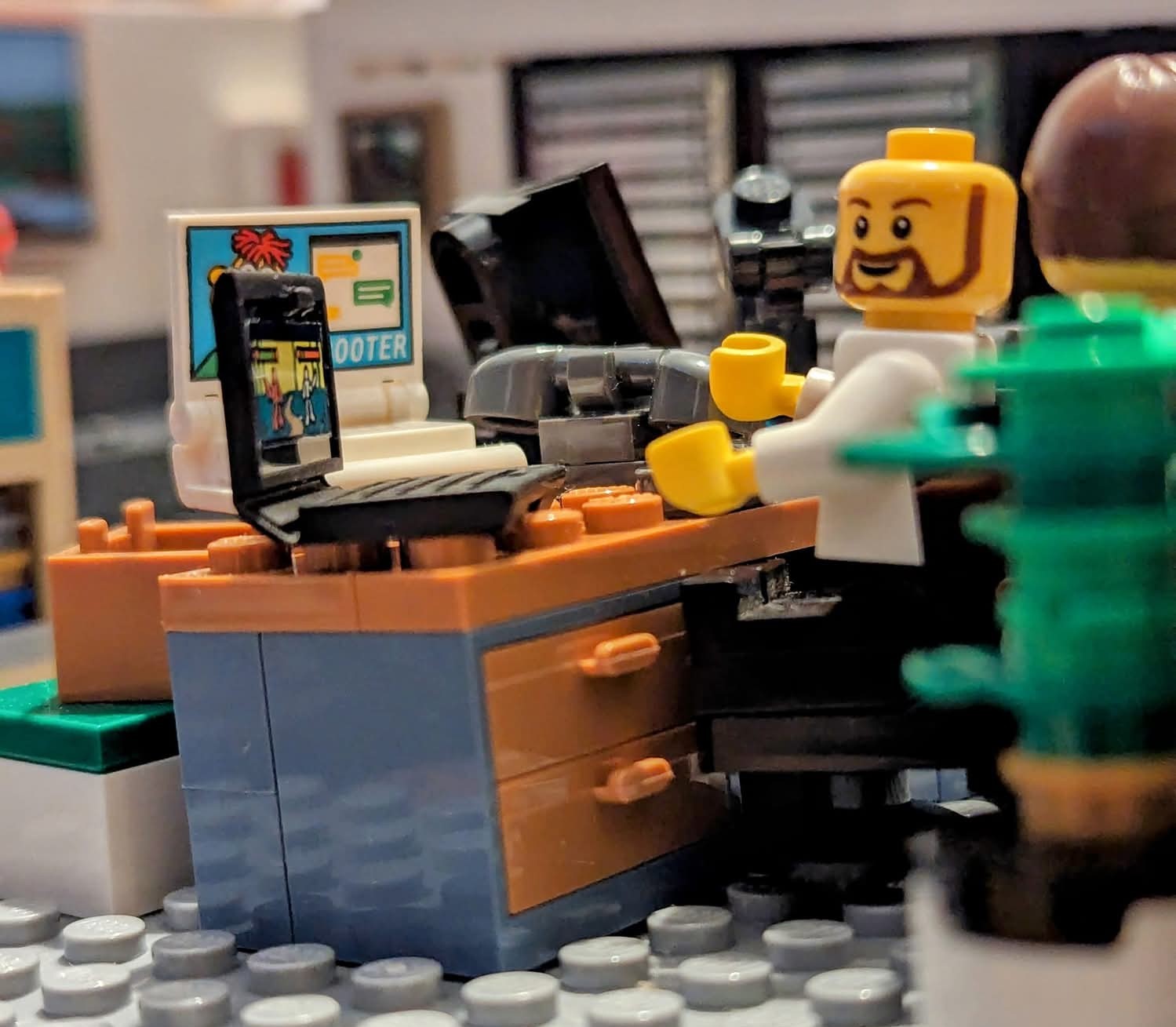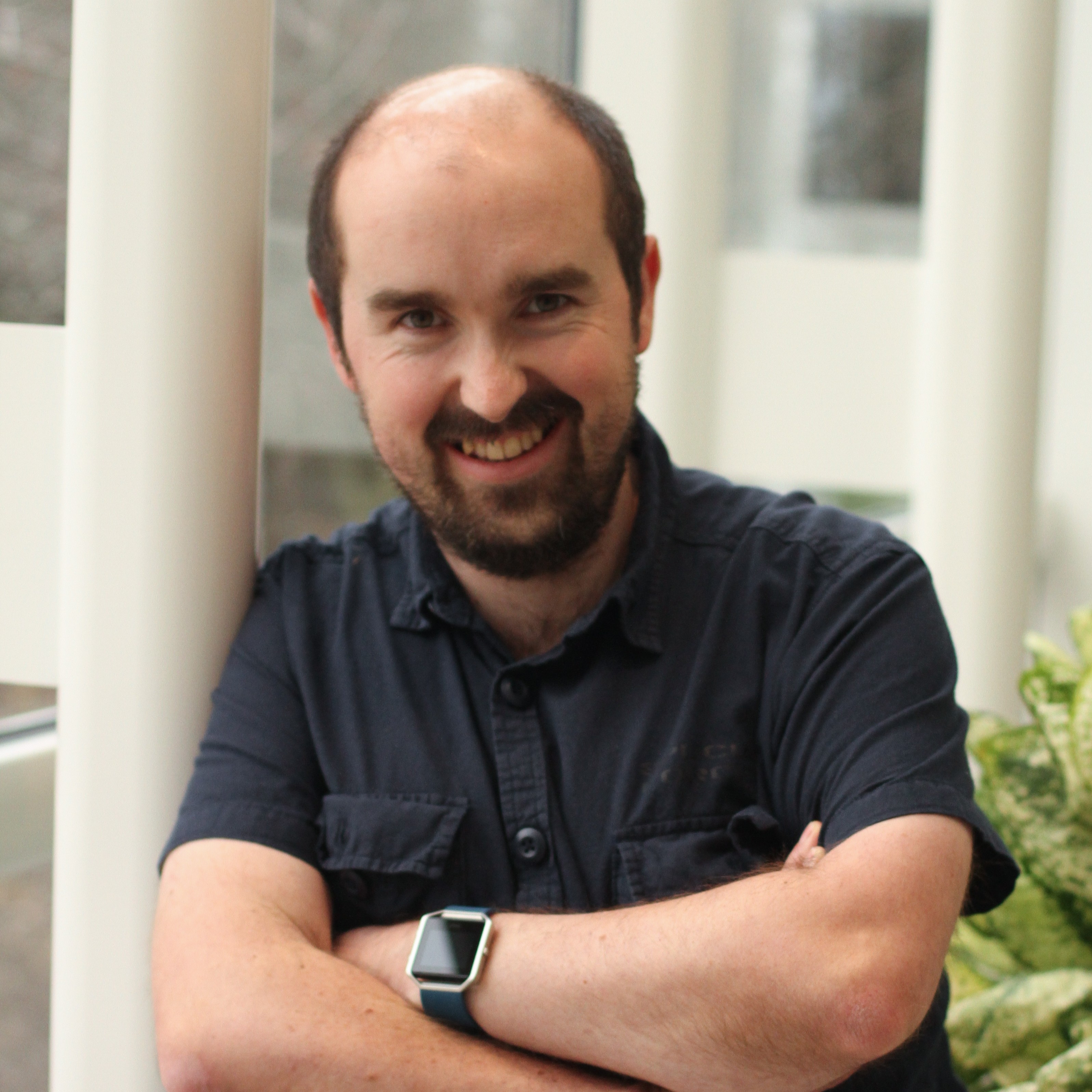Can you tell us a bit about your role at Corteva?
As a Data Integrity Specialist, I am responsible for testing new software, developing training materials, and supporting colleagues across the globe with queries about the key software programmes and processes used at Corteva.
While my main focus is supporting colleagues in the UK and Ireland, Benelux, France, the Nordics, and across Africa and the Middle East, after 15 years in Data Management—learning the ins and outs of all tools in depth—I often receive questions from all regions on pretty much any topic.
Can you describe your journey to becoming a Data Integrity Specialist at Corteva?
When I was younger, agriculture was never something I considered. I initially wanted to be a teacher, but that didn’t work out. I studied History at the University of Edinburgh and then got a Masters in Marketing at Strathclyde University in Glasgow, during which I really enjoyed the Statistics modules and decided to look for work in market research.
A few years later, I found myself in the south of England looking for jobs. I had two options: financial research in London, or a data role in Crop Protection at DuPont. I knew very little about DuPont—apart from the Teflon frying pans—and even less about agriculture, but after interviewing in Stevenage, the people seemed friendly and the data work looked interesting, so I joined DuPont.
Fifteen years later, that role has evolved into the position I hold today at Corteva.
What types of agricultural data have you worked with?
Since joining DuPont/Corteva, I’ve worked with nearly all types of data we handle. This mainly includes data from chemical and biological development trials, across all disciplines—Weed Management, Disease Management, Insect Management, and Seed Applied Technology—and all forms of evaluation, such as population counts, pest severity, chemical control levels, and crop safety.
What has been the most interesting project you've worked on at Corteva?
In the last 18 months, it’s probably been the development of new systems for capturing and recording trials data. We’ve shifted from relying on emailed files and shared drives to cloud storage and automated file transfers.
Alongside this, data outputs have moved beyond basic Excel and PowerPoint presentations to Power BI visualisations, R-Shiny analysis tools, and automatic template generation. This transition has required extensive testing, updates to training materials, and learning new tools like Power BI—and now AI modelling with Microsoft Copilot and other home-grown AI chatbots.
How do you see advances in ag tech impacting data integrity challenges in the future?
Things are moving fast, especially with the rise of AI tools that help analyse data and generate reports. Soon, understanding how to analyse data may become less important than knowing what the data means and being able to verify AI’s work. To succeed, we’ll need to deeply understand the data and explain its story.
In ag tech, shifting from manual data collection to drones and sensors creates huge volumes of data, making AI essential for analysis. Training field teams to collect high-quality data and interpret it correctly will be key.
Do you have a connection to agriculture outside of Corteva?
Not when I started—I had no connection whatsoever to agriculture or the wider industry. But one of my cousins has since married a dairy farmer in Ireland, so there’s now a loose family connection.
Who are the colleagues who have influenced you the most in your professional journey?
I've had the good fortune of working with incredible bosses and patient colleagues who helped me learn about agriculture. Steve Cranwell and David Ogunlana were pivotal in my early days at DuPont, supporting my growth and helping me understand the industry.
My involvement in IT and general interest in making things work proved valuable during DuPont's divestment to FMC and the subsequent merger with Dow AgroSciences, leading to me staying and becoming part of Corteva.
Throughout my career, I’ve moved between UK, European, and Global roles with strong support from my managers. Andreas Huber championed Data Management in Europe, and Mike Chambers in Indianapolis saw my potential, bringing me into his team for software testing and training, ensuring my survival during the merger.
What advice would you give to someone aspiring to work in a similar role as you?
Go for it. Data might not be as glamorous as Sales or as full of buzzwords as Marketing, but without the work my team does, most other groups would struggle. We work behind the scenes to ensure everything is accurate, accessible, and usable. We provide the training and governance that enables others to do their jobs well.
If you’re curious and like learning, I think you’ll enjoy it. I’d argue you don’t even need to be an expert when you start. It’s often easier to teach the basics of agriculture to someone who’s good with numbers than to teach stats and analysis to someone who’d rather be out in the field.
Why would you recommend Corteva as a great place to work?
It’s probably a cliché, but the people. We’re a large organisation with plenty of corporate processes, which can feel overwhelming at times, but the people make up for it. I don’t know if it’s because they work in agriculture or not, but they’ve always been welcoming, open, and approachable.
As someone without an agriculture background, that support was critical in helping me settle in.
Lastly, Alan, pretty much everyone at Corteva knows you are a LEGO fan. If you could design your dream LEGO set—no limits on theme, size, or pieces—what would it be, and why?
I love using LEGO in photographs, so it would probably be a set designed as a backdrop for minifigure photography. Over the years I’ve used everything from the Seinfeld apartment and The Office’s Dunder Mifflin set to tractors and combine harvesters for the images that flood my Instagram.
If I could build something entirely bespoke, it would be a minifigure-scale Edinburgh Castle—with everything from the Esplanade and the One O’clock Gun to the Scots Dragoon Guards Museum (where I worked for over three years while studying at Edinburgh University) and the regimental buildings at the top of the hill. In minifigure scale, it would be a huge build, but the photo opportunities would be awesome.

If you are looking for a role with a difference, Corteva is the right choice, providing valuable learning experiences. Find out more about our talented team here.
